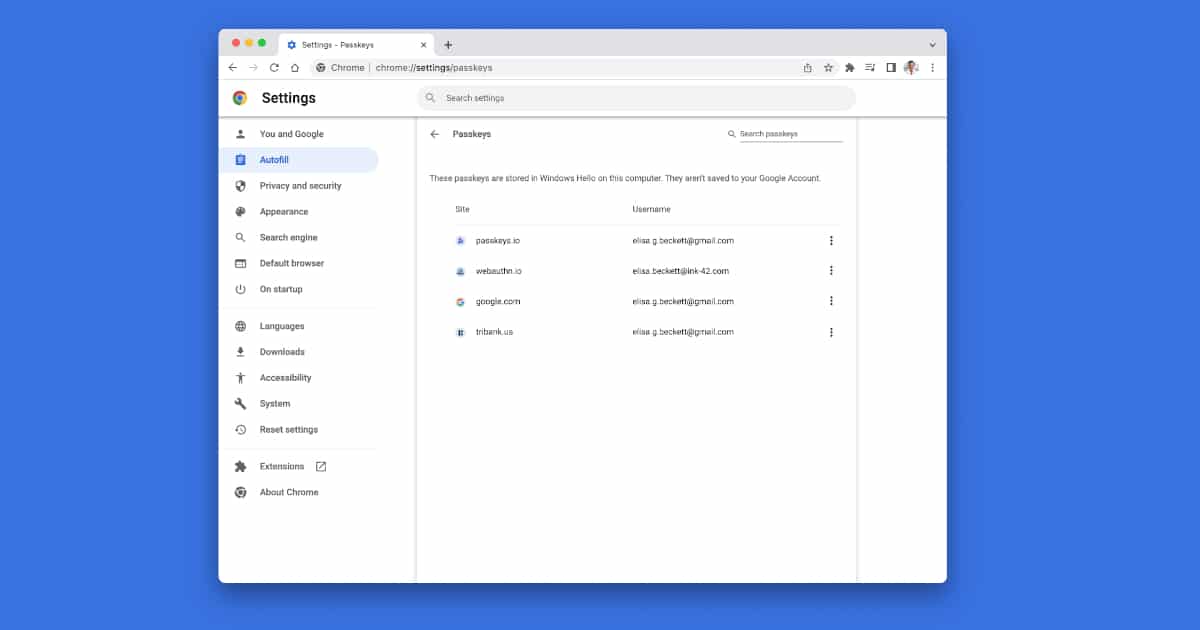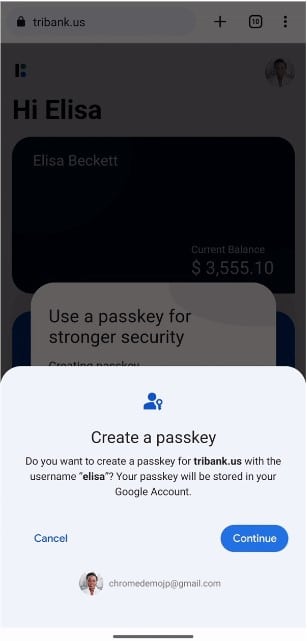Support for passkeys is now available in Chrome Stable M108. This will allow users to sign in to websites using a unique signature in place of a password.

Chrome users can now enjoy the safety of passkeys over traditional passwords
In this day and age, strong passwords are necessary to protect your data. However, even the most robust passwords are at risk of being phished or leaked in data breaches. Users who do not create strong passwords are at even higher risk of having their data compromised.
That’s where passkeys come in. Passkeys allow users to authenticate their identity without a traditional password. They cannot be reused, do not leak in server breaches, and are safe from phishing attacks.
With the latest version of Chrome, Google is enabling passkeys on Windows 11, macOS, and Android. The company is also working on adding support for passkeys to iOS and Chrome OS. Furthermore, users will be able to manage their passkeys from within Chrome on Windows and macOS with the latest Chrome M108 update.

Google says:
Our goal is to keep you as safe as possible on the web and we’re excited for what the passkeys future holds. Enabling passkeys to be used in Chrome is a major milestone, but our work is not done. It will take time for this technology to be widely adopted across sites and we are working on enabling passkeys on iOS and Chrome OS. Passwords will continue to be part of our lives as we make this transition, so we’ll remain dedicated to making conventional sign-ins safer and easier through Google Password Manager.
Passkeys allow users to sign in to supported websites and apps using a unique signature. Technically, passkeys are pairs of private and public keys based on the WebAuthn standard. Unlike a traditional password, the private key that is generated using a passkey is never shared with a site, and therefore, it cannot be stored on their servers.
The application of passkeys is also broad since they are built on industry standards. They can work across different operating systems and browser ecosystems and can be used with both websites and apps.
Read more: